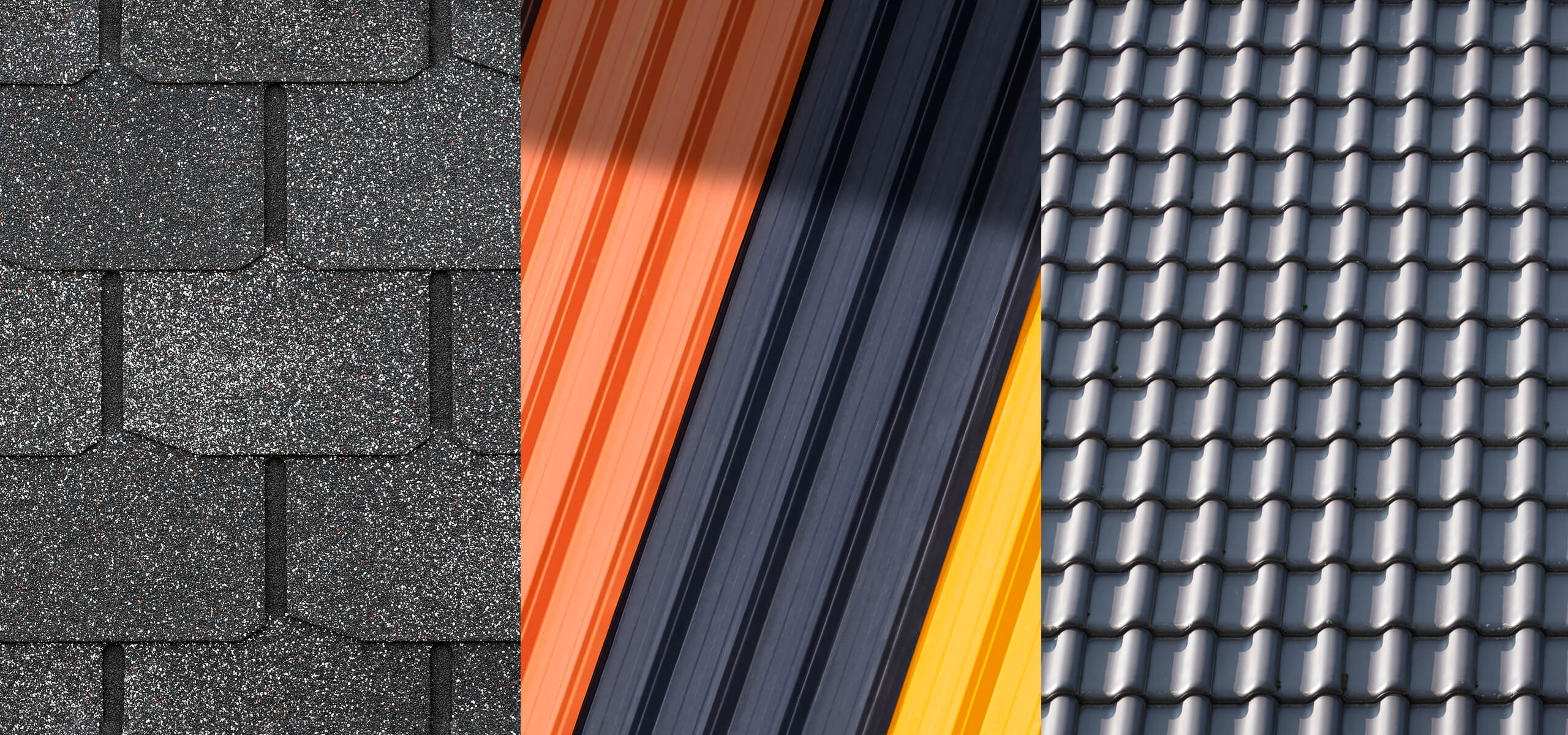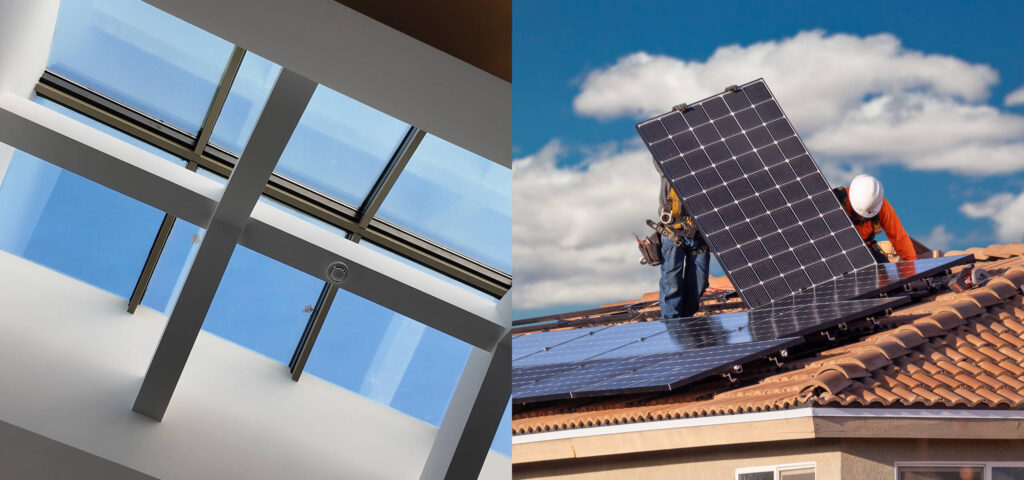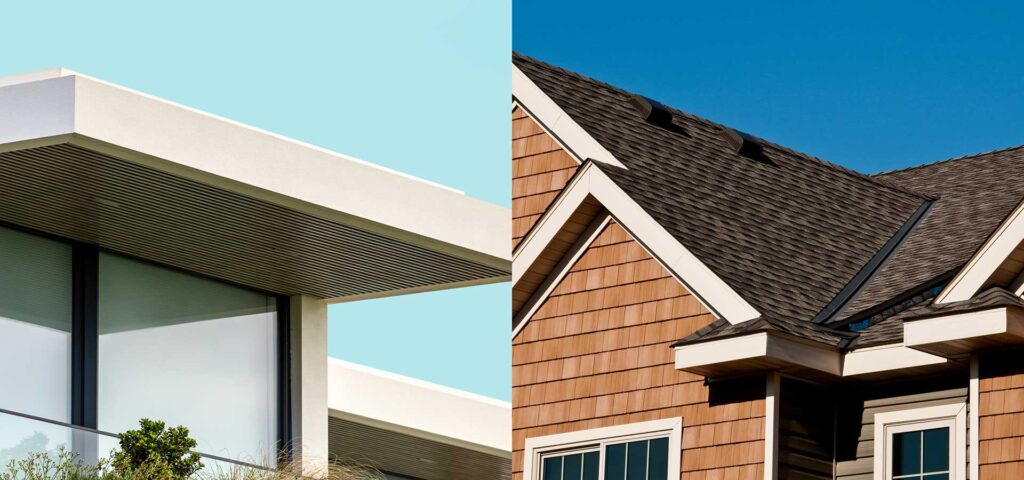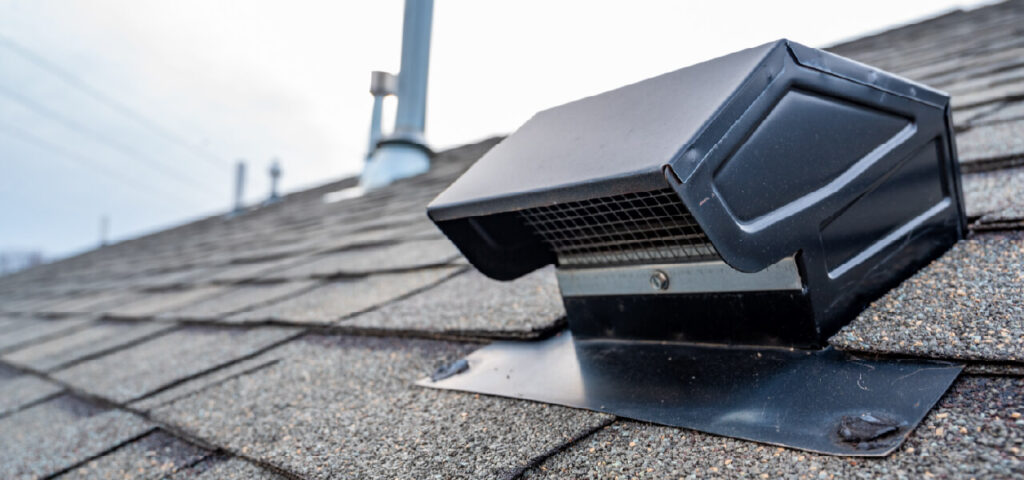If you’re a property owner in Ocala, understanding the differences between residential roofing vs commercial roofing can save you time, money, and frustration. Though all roofs serve the same purpose of protecting against the elements, their design, materials, installation, and maintenance needs vary between homes and businesses.
Whether you’re planning a new installation or trying to decide on the best commercial roofing systems for your business, knowing what sets these roofing types apart will help you make an informed decision.
What Is the Main Difference Between Residential and Commercial Roofing?
The most obvious way to tell the difference between commercial and residential roofing is with the roof’s size and slope. Residential roofing typically features a steep slope and covers a relatively small surface area. This allows for materials like asphalt shingles, tile, or metal panels to be installed in a way that complements the home’s design.
Commercial roofing often has a low slope, or even a flat design to accommodate larger square footage needs. These roofs must be engineered for water drainage, HVAC units or other equipment, and accessibility for repairs. Flat designs make business roof installation more complex and require specialized materials and systems.
How Do Roofing Materials Differ Between Homes and Businesses?
Material selection is very different for each property type because of the slope, design, and purpose of the roof.
Types of residential roofing materials commonly include:
- Asphalt shingles
- Clay or concrete tile
- Metal roofing
Commercial roofing types are usually chosen for performance, energy efficiency, and ease of installation over large areas:
- Thermoplastic Polyolefin (TPO)
- Ethylene Propylene Diene Monomer (EPDM)
- Modified bitumen
What Are The Most Common Types of Commercial Roofing Systems?
When it comes to commercial roofing Ocala businesses rely on, there are a few systems that stand out.
- Single-ply membranes: TPO, EPDM, and PVC are all known for their durability, flexibility, and energy efficiency.
- Built-up roofing (BUR): Multiple layers of bitumen and fabric form a waterproof seal.
- Metal panels: Ideal for sloped commercial roofs and long-term durability.
Choosing the best commercial roofing systems often depends on your building’s needs, your budget, and Florida’s unique weather conditions.
Which Roofing Systems Are Best for Florida Weather?
Florida’s unique climate brings intense sun, high humidity, heavy rain, and the occasional hurricane; all of which put stress on a roof. For residential properties, metal and tile roofs are excellent options because of their wind resistance and longevity.
For commercial buildings, white TPO roofing is a top choice for its reflective qualities, which can help reduce cooling costs. Metal roofing is also a good option, especially when combined with the proper insulation and drainage systems.
How Does Roof Maintenance Vary Between Property Types?
Roof maintenance tips vary based on the roof’s design and material. For residential roofing, inspections should be done at least twice per year to check for things like missing shingles, cracked tiles, or damaged flashing. Keeping gutters clean and trimming overhanging branches will also prolong the roof’s lifespan.
For commercial roofing, inspections should be more frequent since flat roofs are more prone to water pooling and debris accumulation. The general rule of thumb is to get an inspection every quarter. Maintenance often includes sealing seams, checking drainage points, and ensuring the membrane hasn’t been compromised by rooftop equipment.
How Long Do Commercial and Residential Roofs Last?
The longevity of your roof depends on the material used and the maintenance schedule. Residential asphalt shingles typically last 15-20 years, while tile and metal can last 40-50 years or more. TPO and EPDM systems on commercial roofs can last 20-30 years, and metal systems can surpass 40+ years with proper care.
Investing in preventive maintenance is key for both property types to extend their lifespan.
Should You Hire a Specialized Contractor for Each Type?
Yes. The skills, tools, and installation techniques for residential roofing vs commercial are very different. A contractor that’s experienced in shingle installation may not have the expertise to handle a large flat roof with TPO or EPDM membranes, and vice versa.
In Ocala, hiring a contractor who specializes in your property type ensures your roof is built to last while meeting local building codes—and withstand Florida’s climate. It also helps protect your warranty, since many roofing material manufacturers require certified installers for coverage.
Understanding the differences between residential and commercial roofing will help you choose the right system, maintain it properly, and get the most out of your investment for your home or business.
From material selection to installation and long-term care, every decision you make can affect your roof’s performance and lifespan. With Ocala’s mix of sun, storms, and humidity, choosing the right roofing partner is just as important as choosing the right roofing system.
If you’re ready for a roof that’s built to last, contact us today for expert guidance for your home or business needs.




